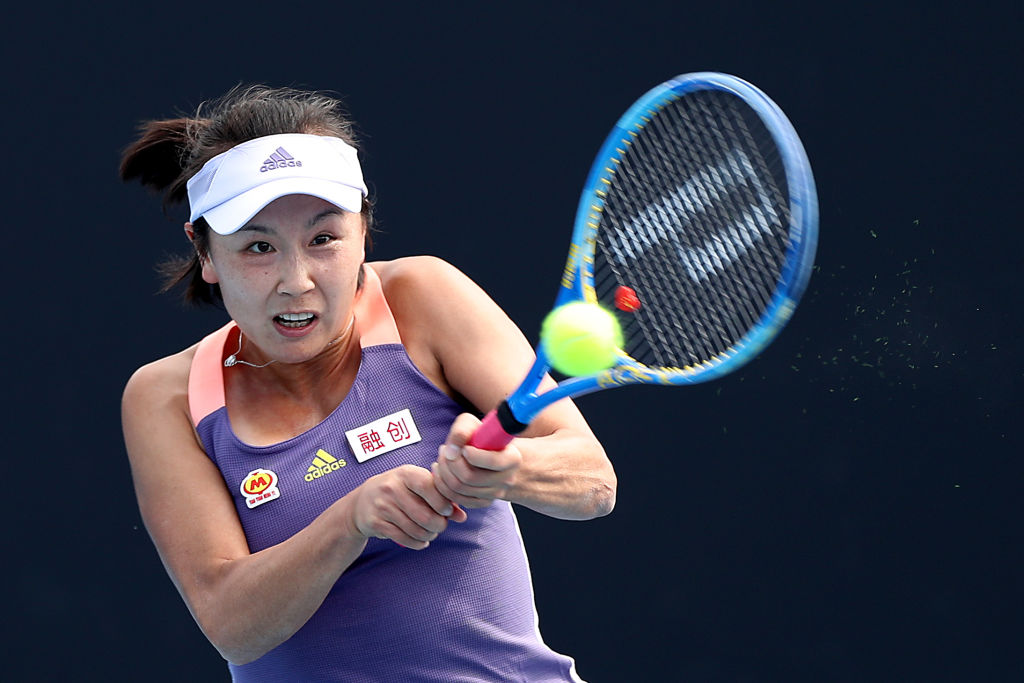Peng Shuai: What we know, the IOC and the Olympic Games

The curious case of Peng Shuai gets curiouser and curiouser as the days roll by. From initial allegations, to a prolonged period away from public view, to a court-side appearance, to a video call with International Olympic Committee (IOC) president Thomas Bach. It’s almost unbelievable.
The timeline began on 2 November, when Peng accused a former Vice-Premier of China, Zhang Gaoli, of sexual assault – stating how he forced her into sexual relations.
The post was published on Chinese social site Weibo but remained online for less than a hour before being removed. By then, though, the news had travelled further than the site.
Peng then had a period of not being seen in public. Concerns were raised by the Women’s Tennis Association (WTA) over the whereabouts of the former world No1 doubles player, with chief executive Steve Simon calling for an investigation into the allegations.
Fast forward to the weekend where the sporting, and wider, world were shocked to see IOC president Bach on a video call with Peng.
She is said to have declared that she was ‘safe and well’ but the video did little to ease WTA concerns, with their statement on the IOC video saying: “It was good to see Peng Shaui in recent videos, but they don’t alleviate or address the WTA’s concern about her wellbeing and ability to communicate without censorship or coercion.”
Since, an image has emerged of Bach and Zhang, the accused abuser, together shaking hands. The former Vice Premier presided over meetings surrounding Beijing’s 2022 hosting of the winter Olympics when he held office, raising concerns over the IOC’s intentions surrounding the video call.
“A lot of people are looking at Thomas Bach, and alleging that he is complicit, and he is essentially condoning what the Chinese government is doing,” said Simon Chadwick, an industry expert.
“But it’s about her [Ms Peng], and it’s about the way in which she alleges to have been treated by a man.
“There are issues of gender equality and patriarchy and male coercion.
“The situation is serious, and the true state of Ms Peng’s wellbeing remains debatable.
Human rights lawyer and former olympic swimmer Nikki Dryden accused the IOC of using the call as a “publicity stunt”.
“I think it’s a complex situation, and there is an emerging battle,” Chadwick continued. “But to go back to Sunday, I think what Thomas Bach is doing is he’s already had to contend with a summer Olympic Games that was disrupted and was not as commercially successful as he presumably wanted it to be.
“And he and the IOC, and now on the cusp of a second event being disrupted, possibly, because I think the apocalyptic scenario for the IOC is that a full scale athletic boycott of the winter Olympics takes place. He knows that, ultimately, there could be a boycott of the winter Olympic Games.”
The commercial dent the IOC would have taken having to host a summer Games without fans would have been significant, MarketWatch suggests the cost of hosting the Games this summer could have been upward of $20bn (£14.9bn), a lot higher than the estimated $6.7bn (£5bn) revenue projection.
That said, among the cauldron of revenues talk, commercialisation and potential boycott’s, there is an athlete’s wellbeing in question.
And while Chinese foreign ministry spokesman Zhao Lijian yesterday said “I think some people should stop deliberately and maliciously hyping [the issue] up”, it’s certainly not going away.